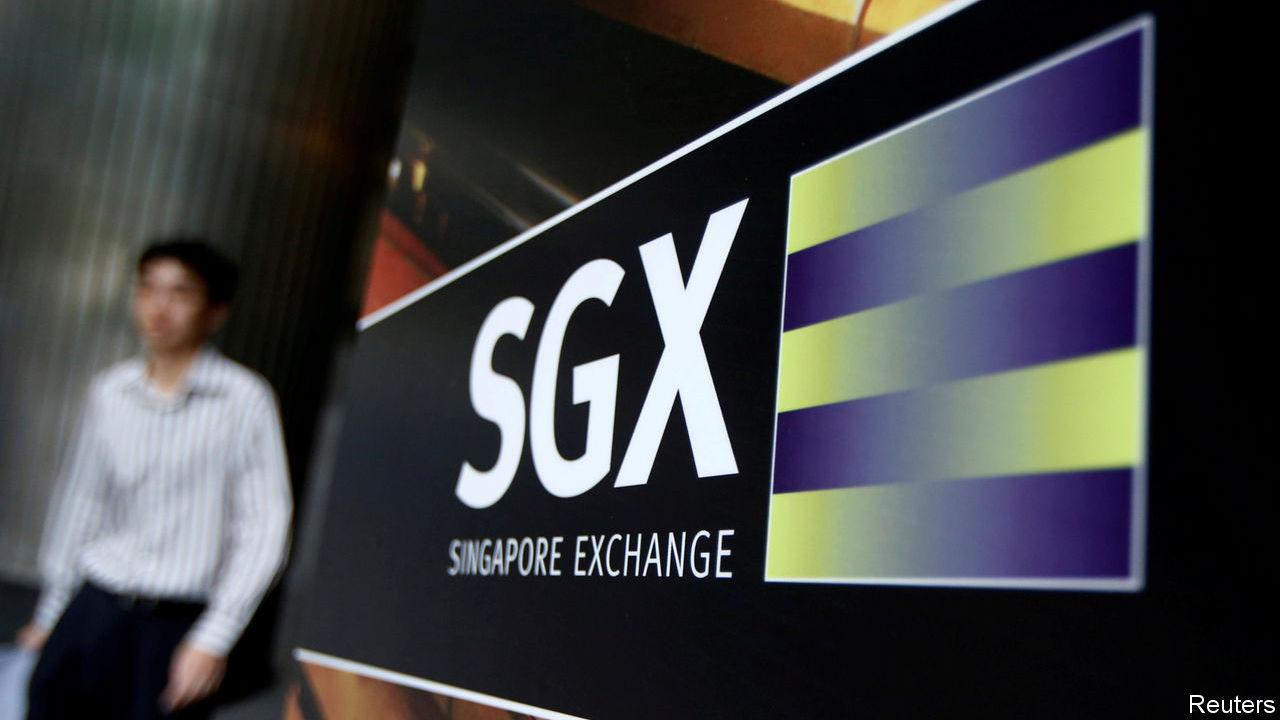
- Although stock trades are often made in milliseconds by algorithms, completing them involves co-ordinating payment and delivery among a mess of databases and then reconciling the records
- In big financial centres trades take two full days to settle. Some stock exchanges wonder whether blockchain’s distributed, tamper-proof ledgers and immutable and transparent transaction records could speed up and simplify the process
BLOCKCHAIN, THE technology underlying bitcoin and other cryptocurrencies, was designed with an ideological aim: to sidestep central authorities and governments. But many people have become intrigued by its practical uses, such as updating back-office processes. And few institutions have shown more interest in such applications than financial exchanges.
Although stock trades are often made in milliseconds by algorithms, completing them involves co-ordinating payment and delivery among a mess of databases and then reconciling the records. In big financial centres trades take two full days to settle. Some stock exchanges wonder whether blockchain’s distributed, tamper-proof ledgers and immutable and transparent transaction records could speed up and simplify the process.
Exchanges from America and Australia to Switzerland and Singapore are studying the concept. Australia’s stock exchange, the ASX, has moved furthest towards using blockchain to replace its main clearing and settlement platform. It has been testing technology from Digital Asset, an American firm, and will go live in mid-2021. And on November 11th SGX, Singapore’s stock exchange, and the Monetary Authority of Singapore (MAS), its central bank, announced a prototype using blockchain for delivery, payment and settlement of assets.
These projects are strikingly unlike the vision of blockchain enthusiasts. ASX’s, for example, uses ledgers but remains quite centralised. A single counterparty, ASX itself, must approve participants (which removes the need for energy-intensive verification and updating of records, as with bitcoin). Though open to all, only some banks and brokers will opt for direct access. Everyone else must trade through them. In contrast to the complete transparency of the bitcoin ledger, market participants will not have access to the whole dataset (for legal reasons, but also so they do not have to give away their positions). And settlement will not be in real time.
Why, then, bother? Kelly Mathieson of Digital Asset says her firm’s purpose-built programming language, DAML, which enables financial contracts to be automated, will make further innovation easy. The tedious processes of reconciliation, she says, will be drastically simplified.
As soon as next year investors will be able to see the result of another, smaller experiment. SIX, the owner of the Swiss stock exchange, will launch a separate digital platform for trading assets, such as stocks and bonds, in “tokenised†form—that is, in a format blockchain can handle. Tokenising will eliminate minimum trade sizes, says Thomas Zeeb of SIX. It will also make a much wider range of assets tradable. Mr Zeeb has already been approached by a museum that wants to tokenise its art collection, as a novel source of funding. Investors would gain exposure to the value of the art going up or down through such tokens, which they could trade.
All these projects have, or plan to obtain, official blessing; after all, exchanges are highly regulated. But the Singaporean project shows the value of seeking more than a nod of approval. MAS’s involvement meant the prototype did not limit itself to stock trading or settlement, but also looked at digital currency issued by the central bank. Quite a turnaround for a technology designed to circumvent governments.
Source: https://www.economist.com/finance-and-economics/2018/11/17/stock-exchanges-find-novel-uses-for-blockchain
Tags: #smallcapstocks, $TSXV, Bitcoin, blockchain, CSE